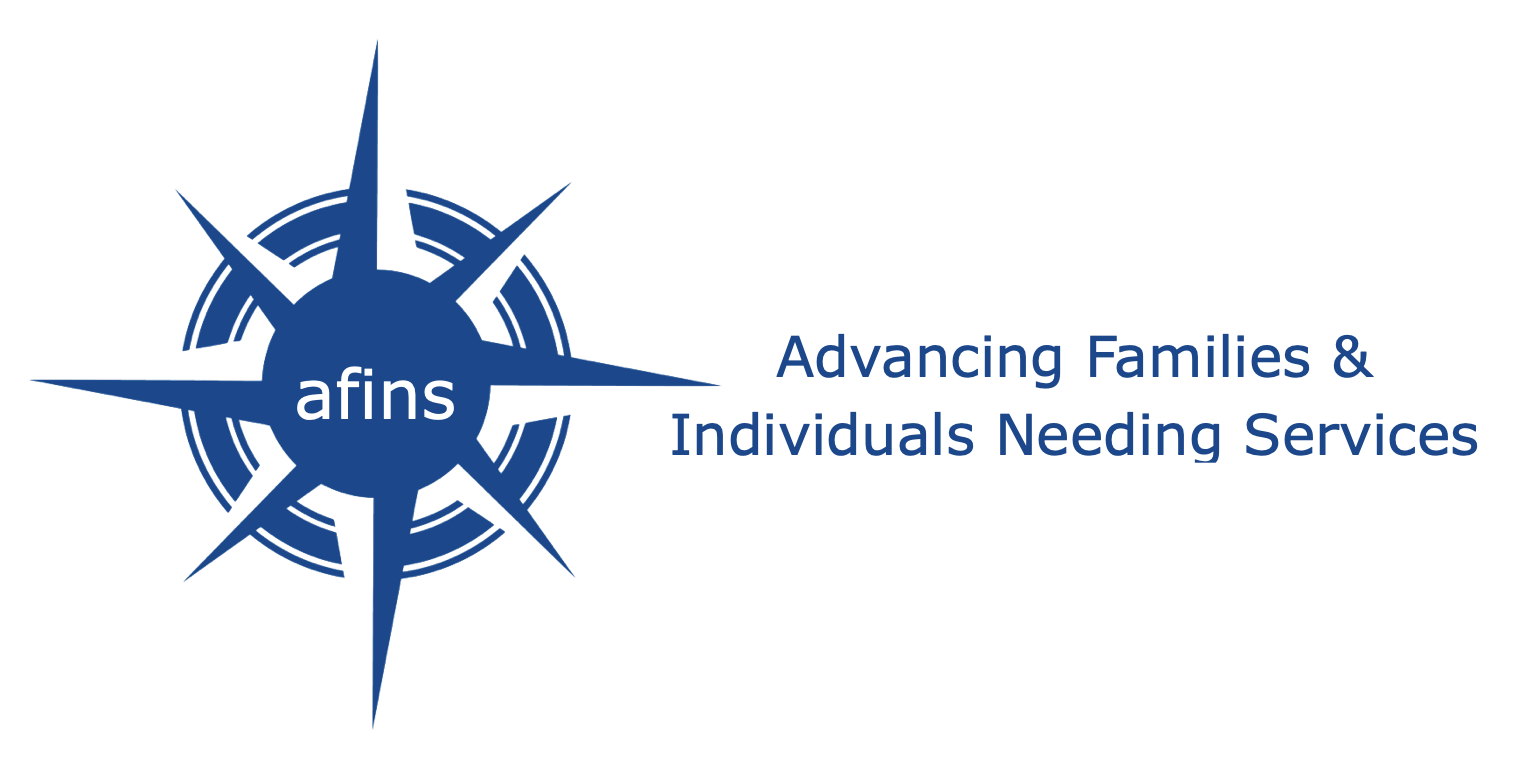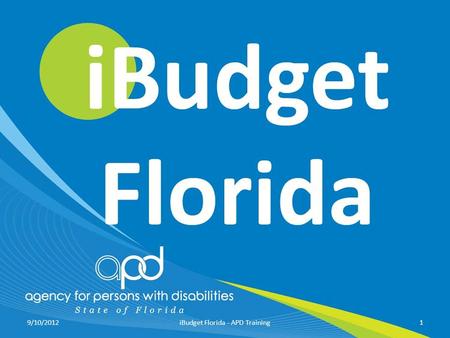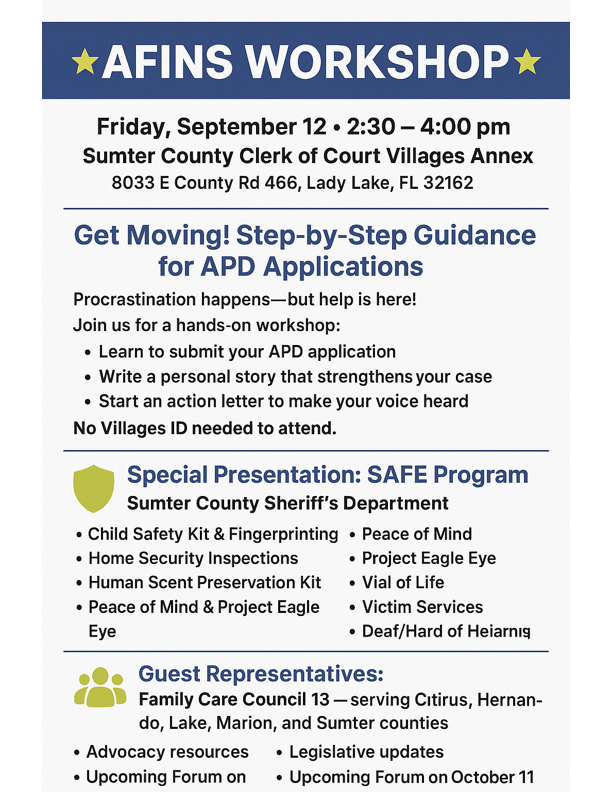The Florida iBudget Waiver program offers twenty-six (26) services that are grouped into eight (8) service categories, called service families, (most often referred to by their group numbers) with the goal of making the system as flexible as possible for customers and their providers. Here is a brief description of each group.
Group 1 – Life Sills Development
- Life Skills Development Level 1 is a service of non-medical care and socialization activities provided to an adult on a one-to-one basis or in groups of up to three recipients.
- Life Skills Development Level 2 is a service that helps the individual to get and keep a job in their community, or to develop and operate a small business.
- Life Skills Development Level 3 is a service supports the individual to participate in valued experiences in the community, including volunteering, job exploration, accessing community resources, and self-advocacy in work-like settings that are age and culturally appropriate.
- Family and Legal Representative Training is a service that helps the customer, family and/or legal representative learn to locate and coordinate services from sources such as the local communities, federal and state government, Medicaid state plan, school services, and waiver services.
Group 2 – Supplies and Equipment
- Consumable Medical Supplies is a service that provides nondurable supplies and items not otherwise available through the Florida Medicaid Plan, such as incontinence supplies, wipes, and pads, that enable individuals to perform activities of daily living,
- Durable Medical Equipment and Supplies is a service that provides equipment, prescribed by a physician, that is not covered by the Florida Medicaid Plan. Examples include lap trays, grab bars, lifts, and individualized positioning equipment.
- Environmental Accessibility Adaptations is a service that provides physical adaptations to the home that are required by the individual’s support plan and are medically necessary to avoid institutional placement of the individual and enable him to function with greater independence in the home.
- Personal Emergency Response Systems is a service that provides the equipment and monitoring service that enables an individual to secure help in the event of an emergency. The individual may wear a portable “help” button that allows for mobility while at home or in the community.
Group 3 – Personal Supports
- Personal Supports is a service for customers 21 and older who live in their own home or family home. It also applies to those at least 18 but under 21 who live in their own home. It provides assistance and training in activities of daily living such as eating, bathing, dressing, personal hygiene, and preparation of meals. If specified in the support plan, this service may provide housekeeping chores. This service also includes non-medical care and socialization, and may provide access to community-based activities that have therapeutic benefits.
- Respite Care is a service that provides supportive care and supervision to individuals under age 21, living in the family home, when the primary caregiver is unavailable due to a brief planned or emergency absence, or when the primary caregiver is temporarily physically unable to provide care.
Group 4 – Residential Services
- Residential Habilitation is a group of services that provide supervision and training that help the customer to acquire, maintain and improve skills related to activities of daily living. The services focus on personal hygiene skills such as bathing and oral hygiene; homemaking skills such as food preparation, vacuuming and laundry; and on social and adaptive skills that enable the individual to reside in the community.
There are four types of residential habilitation:
-
- Standard Residential Habilitation
- Behavior-Focused Residential Habilitation
- Intensive-Behavior Residential Habilitation
- Live-In Residential Habilitation
- Specialized Medical Home Care is a service that provides up to 24-hour-a-day nursing services and medical supervision to residents of licensed group homes that serve individuals with complex medical conditions.
- Supported Living Coaching is a service that provides training and assistance in a wide variety of activities to support individuals who live in and maintain homes or apartments of their own.
Group 5 – Support Coordination
- Support Coordination is a group of services that provide a waiver support coordinator to identify, develop, coordinate, and access supports and services on the person’s behalf, regardless of funding source, in the most cost-effective manner possible.
There are three types of support coordination:
-
- Limited Support Coordination
- Full Support Coordination
- Enhanced Support Coordination
Group 6 – Therapeutic Supports and Wellness
- Private Duty Nursing is a service for persons requiring individual, continuous care by registered or licensed practical nurses as prescribed by a physician.
- Residential Nursing is a service prescribed by a physician and consists of continuous care provided by registered or licensed practical nurses to individuals in residential facilities, group homes, or foster homes.
- Skilled Nursing is a service prescribed by a physician and consists of part-time or intermittent care provided by registered or licensed practical nurses.
- Dietician Services is a group of services prescribed by a physician as being necessary to maintain or improve the overall physical health of an individual. They include assessing nutritional status and needs, recommending an appropriate diet, and providing counseling and education.
- Respiratory Therapy is a service that relates to impairment of respiratory function and other deficiencies of the cardiopulmonary system. It requires a physician’s prescription.
- Speech Therapy is a service prescribed by a physician as necessary to produce specific functional outcomes in the communication skills of an individual with a speech, hearing, or language disability.
- Occupational Therapy is a service prescribed by a physician with the goal of producing specific functional outcomes in self-help, adaptive, and sensory motor skill areas, and assisting the individual to control and maneuver within the environment.
- Physical Therapy is a service prescribed by a physician that produces specific functional outcomes in ambulation, muscle control, and postural development and prevents or reduces further physical disability.
- Specialized Mental Health Counseling is a service provided to treat or control an individual’s mental illness and restore the person to the best possible functional level.
- Behavior Analysis Services is a group of services that include the analysis, development, modification, and monitoring of behavior for the purpose of changing an individual’s behavior.
- Behavior Assistant Services is a group of services provided for a limited time, under supervision by a behavior analyst, to train paid or unpaid support persons in how to assist the individual in functioning more independently.
Group 7 – Transportation
- Transportation is a service that provides rides between the individual’s home and community-based waiver service providers, enabling the individual to receive the supports and services identified on both the support plan and approved cost plan, when such services cannot be accessed through unpaid supports.
Group 8 – Dental Services
- Adult Dental Services is a group of services that provide dental treatments and procedures that are not otherwise covered by Florida Medicaid Plan services.






